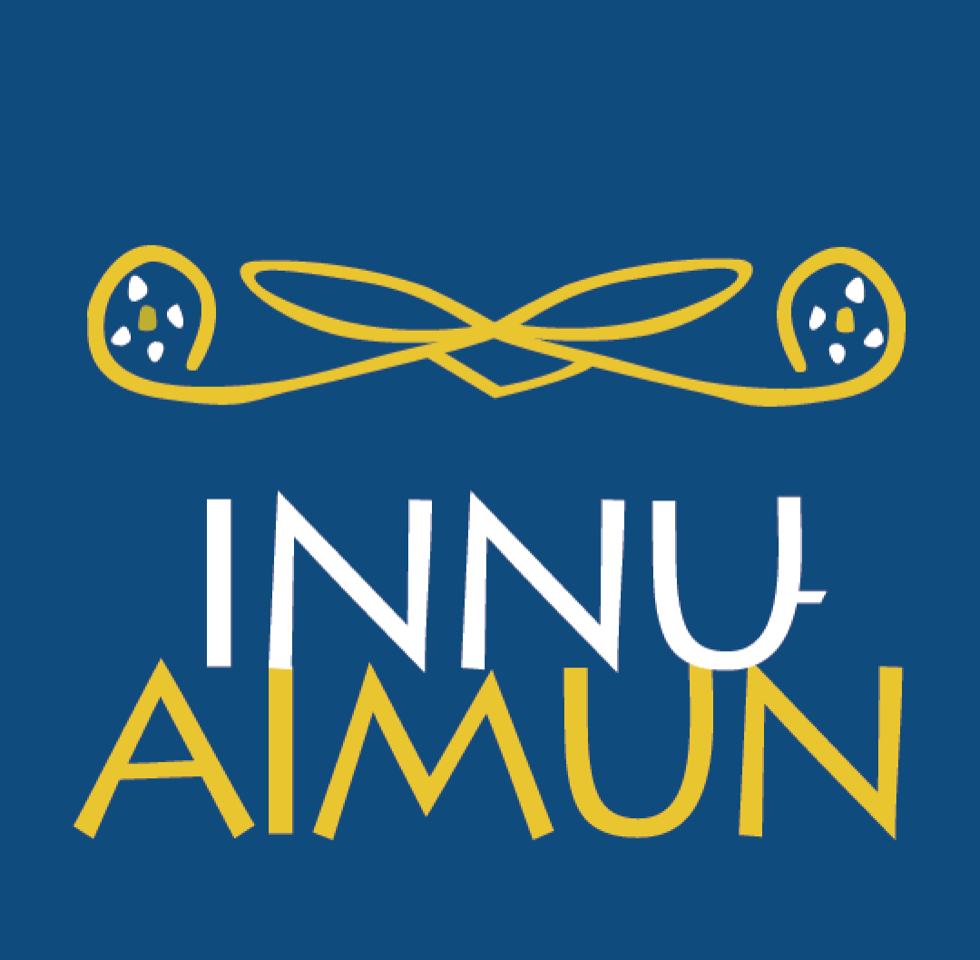| tshimish | your big sister |
| tshishtikuan | your head |
The nouns tshimish and tshishtikuan are called dependent nouns. They are always preceded by a personal prefix, indicating a relationship.
| nimish | my big sister | umisha | her/his big sister | |
| nishtikuan | my head | ushtikuan | her/his head |
In the Innu Dictionary, a noun like umisha has the grammatical category NAD (dependent animate noun), while a noun like ushtikuan is marked as an NID (dependent inanimate noun). Dependent nouns include kinship terms, body parts, and some objects.
| ukueiau | NID | her/his neck |
| nitun | NID | my mouth |
| nititshi | NID | my hand |
| ushima | NAD | her/his younger brother or sister |
| tshimushumat | NAD | your grandfathers |
| tshimushumipanat | NAD | your late grandfathers |
| nitash | NAD/NID | my sock |
| mitash | NAD/NID | a sock |
The following table gives the forms of a dependent animate noun for each person in singular, plural and obviative. With a 3rd person possessor, the possessed noun is always obviative.
| Possessed | Singular | Plural | Obviative |
|---|---|---|---|
| Possessor | |||
| niń (1s) | nimish | nimishat | nimisha |
| my older sister | my older sisters | my older sister / my older sisters | |
| tshiń (2s) | tshimish | tshimishat | tshimisha |
| your older sister | your older sisters | your older sister / your older sisters | |
| nińan (1p) | nimishinan | nimishinanat | nimishinana |
| our older sister (but not yours) | our older sisters (but not yours) | our older sister / our older sisters (but not yours) | |
| tshińanu (21p) | tshimishinan / tshimishinu | tshimishinanat / tshimishinuat | tshimishinana / tshimishinua |
| our older sister (yours and mine) | our older sisters (yours and mine) | our older sister / our older sisters (yours and mine) | |
| tshińuau (2p) | tshimishuau | tshimishuauat | tshimishiuaua |
| your (pl) older sister | your (pl) older sisters | your (pl) older sister / your (pl) older sisters | |
| uiń (3s) | umisha | ||
| her/his older sister / her/his older sisters | |||
| uińuau (3p) | umishuaua | ||
| their older sister / their older sisters | |||
| neńua (utauassima) (4) | umishińua | ||
|
her/his older sister / her/his older sisters / their older sister / their older sisters (e.g. those of her friend)
|
The prefix mi-
To indicate a general meaning, the indefinite prefix mi- is used, particularly with inanimate dependent nouns. Mi- indicates an unspecified possessor.
| ushtikuan | her/his head |
| mishtikuan | a head |
The suffix -imau is added to certain dependent animate nouns (kinship terms) to indicate a general meaning.
| umisha | her/his older sister |
| umishimau | an older sister (the sister of someone in general) |
The suffix -im
Dependent nouns use the suffix -im to indicate that the relationship includes another (3rd) person.
| nishtikuan | my (own) head |
| nushtikuanim | my head (taken from someone else, for example the moose I killed) |
| ushkashia | her/his (own) nail |
| ushkashima | her/his nail, her/his claw (taken from an animal or someone else) |
In fact, a possessive prefix and the suffix -im are added to the 3rd person form : ni + ushtikuan + im = nushtikuanim (literally: my + her/his.head + im).
The grammar of dependent nouns shows that the Innu language conceives these terms as always being in relation to someone, as being a part of a whole.

